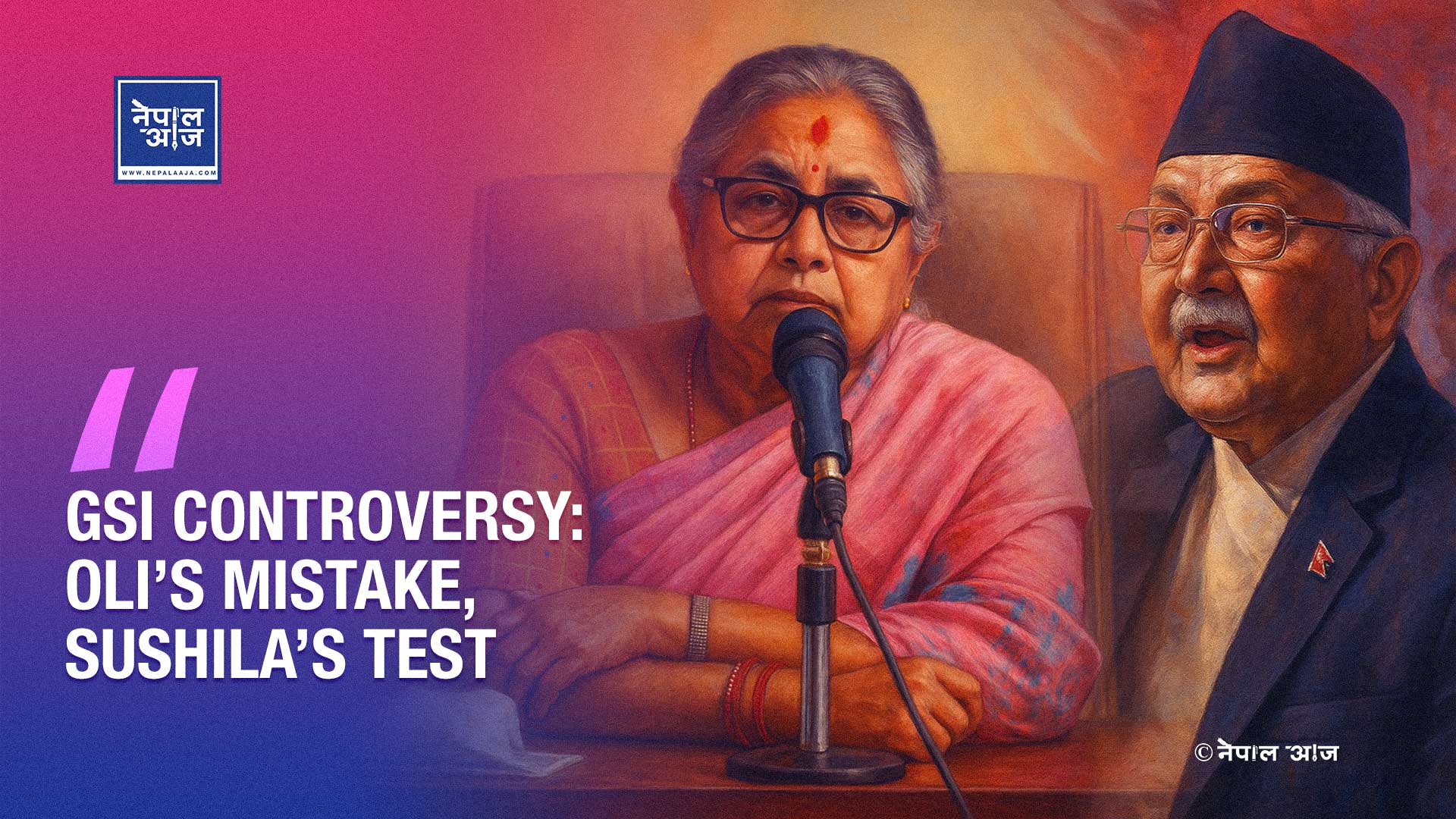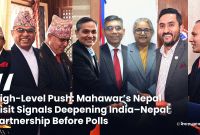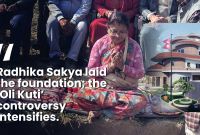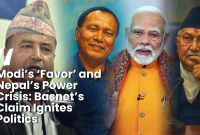GSI Controversy: Oli’s Mistake, the Burden Sushila Shouldn’t Carry

Kathmandu. The debate over China’s Global Security Initiative (GSI) has resurfaced in Nepal’s political sphere — a controversy that traces back to former Prime Minister K.P. Sharma Oli’s tenure, and which has once again put Nepal’s foreign policy under scrutiny.
On August 30, 2025, during the SCO Summit in Tianjin, China’s Ministry of Foreign Affairs released a statement claiming that Nepal had expressed support for GDI, GSI, and GCI — three of Beijing’s key global initiatives. Within hours, however, Kathmandu officially refuted the claim, clarifying that Nepal had never supported the GSI.
According to diplomatic analysts, the confusion was the result of Oli’s diplomatic negligence. They argue that his government failed to issue a clear rebuttal or official clarification immediately after China’s misleading statement — giving Beijing the opportunity to present its narrative internationally as fact.
Nepal’s Constitution enshrines a policy of non-alignment, meaning the country does not join any military or security bloc. Previous actions — such as rejecting the BIMSTEC military drill in 2018 and the U.S. State Partnership Program (SPP) in 2022 — had reinforced Nepal’s neutral stance.
However, during Oli’s tenure, the GSI controversy emerged, raising doubts about Nepal’s commitment to its long-standing neutrality. China’s claim that “Nepal supports GSI” spread globally, while the Nepali government’s delayed response made the situation more complicated.
Adding to the diplomatic tension was another unresolved issue — Lipulekh. Oli had earlier accused India and China of violating Nepal’s sovereignty by including Lipulekh in their trade route discussions. Yet, China’s subsequent official statement omitted Lipulekh entirely, fueling speculation that Kathmandu’s protest had been quietly diluted.
Following the collapse of the Oli government amid youth protests, an interim administration under Sushila Karki has now taken office. Interestingly, around the same time, China modified its earlier statement. Political observers note, however, that “this is not a burden Sushila Karki should inherit — rather, it is an opportunity to correct Oli’s mistake.”
Experts warn that if Nepal were ever to officially endorse the GSI, it would:
-
End its neutrality,
-
Strain relations with India and Western allies,
-
Allow China deeper involvement in Nepal’s security structure, and
-
Trigger fresh political turmoil at home.
Analysts argue that Prime Minister Sushila Karki must take a clear stance — “No GSI” — to protect Nepal’s independence and foreign policy integrity.
Ultimately, Nepal’s survival does not depend on joining any major power’s security network but on maintaining a transparent, independent, and neutral foreign policy — a principle that must guide its diplomacy moving forward.
GSI



![From Kathmandu to the World: How Excel Students Are Winning Big [Admission Open]](https://www.nepalaaja.com/img/70194/medium/excel-college-info-eng-nep-2342.jpg)
